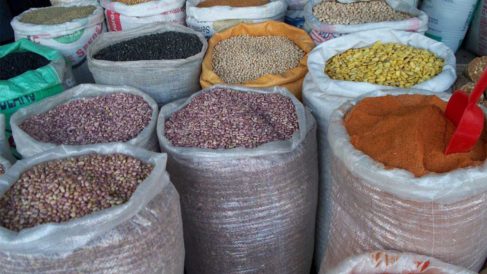According to the Cadre Harmonise, about 26 million Nigerians in Borno, Sokoto and Zamfara States including the FCT are expected to be in a food crisis between June and August 2024.
Cadre Harmonise is a report put together by the Ministry of Agriculture and Food Security with technical support from the Food and Agriculture Organisation (FAO) of the United Nations and other partners.
The analysis was conducted in 26 states and the FCT to ascertain the food security situation and make projections for the future
The FAO country representative, Dominique Kouacou said the main goal of the report is to analyse all available data for the purpose of identifying populations at risk of food and nutrition insecurity in the country.
Kouacou who was represented by Dr Abubakar Suleiman, Assistant FAO representative (Programme), said the current cycle is happening after an unusual lean season, during which we witnessed several shocks, ranging from persistent insecurity situations like insurgency, banditry
Others according to him include natural resource-based conflicts, high cost of food and agricultural inputs due to high inflation and other economic factors and severe dry spells in some states immediately after the onset of rains.
Report Ad
He said the combination generally affected the livelihoods and food security of many households at the peak of the lean season.
He, however, commended the increasing interest of the government in empowering communities and strengthening their resilience so they could be self-reliant.
He pledged to continue supporting the government and vulnerable communities to achieve these goals.
The Permanent Secretary, Ministry of Agriculture and Security Dr Ernest Umakhihe said the analysis was conducted and validated by highly skilled professionals of the CH analysis task force over the past two weeks.
Represented by Mrs Fausat Lawal, Director of Special duties, the Permanent Secretary said the results of the cycle of Cadre Harmonise (CH) analysis is coming at a time when government at all levels was leaving no stone unturned in reinvigorating the nation’s economy.
This, he said is by first addressing the challenges to food and nutrition Insecurity.
He said daunting as this could be, it is surmountable, adding that although several factors seemed to be negating the ministry’s efforts.
“Notable among them are the lingering negative impact of COVID-19 on the global economy and the Russia-Ukraine war which is currently disrupting the food systems and spiking up input prices and food prices.
“The removal of petroleum subsidy has further heightened this pressure, resulting in food inflation and increases in consumer price index.”
Dr Umakhihe also said that environmental and human factors such as climate change, displacements due to insecurity and seasonal flooding regimes had all remained recurrent concerns.







